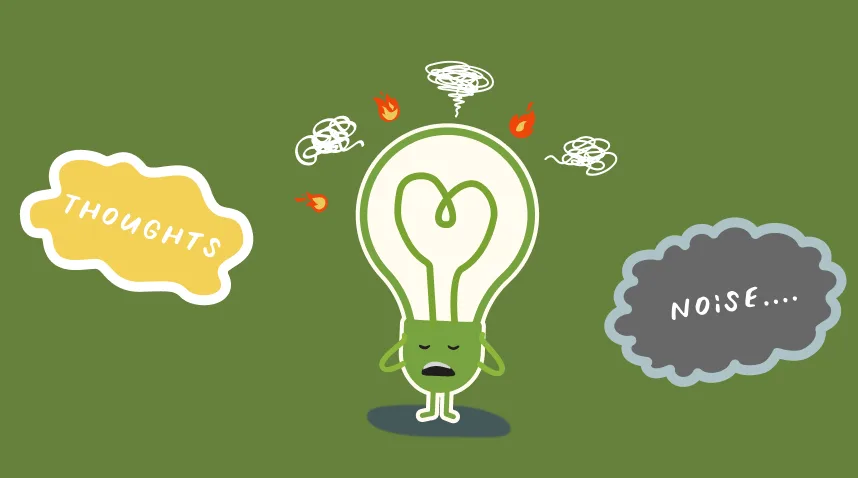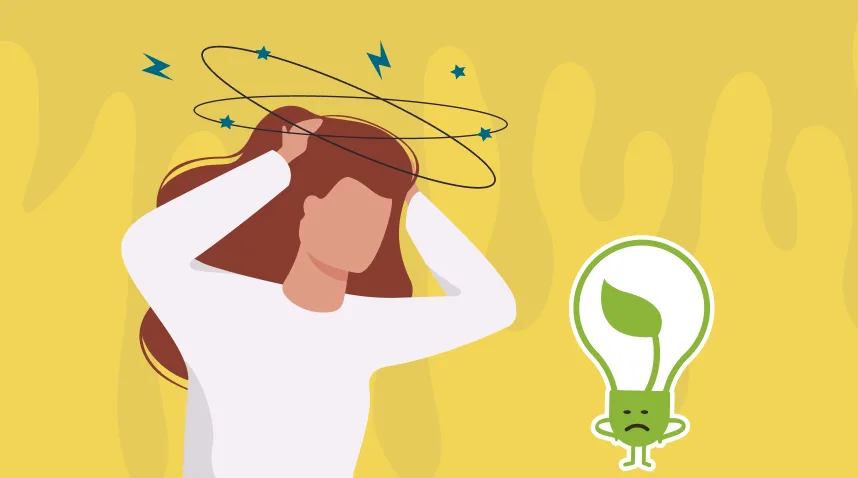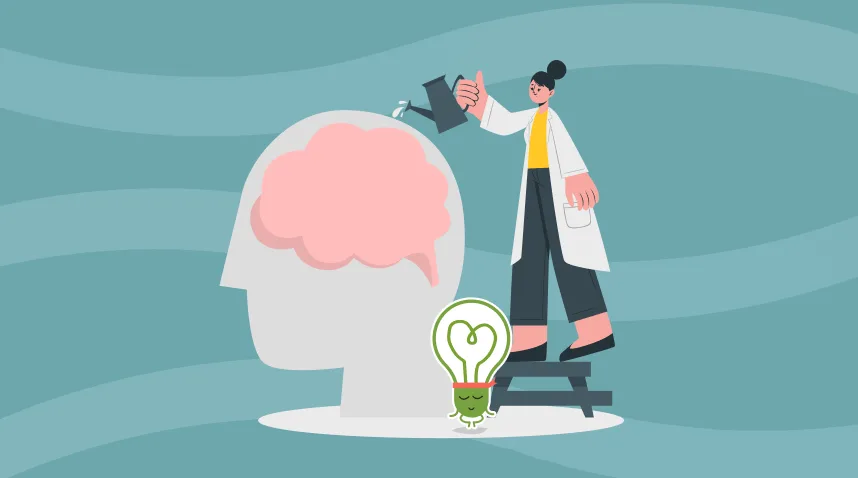TLDR: Meditation always seems so hard to get acquainted with, there is always this inner voice that says, I can’t do it or I don’t do it good enough. However, once you recognize what is making it so difficult, your “enemies” can become your friend too.
How’s your meditation retreat? If the answer is “so so” or “not so good,” congratulations you fit into 99% of what most meditation practitioners experienced. Oftentimes, just having this idea about how our meditation practice should be going is already setting us up for “failure”.
There is an innate judgement or comparison about how our mind ought to be during meditation instead of simply observing it as it is.
We have this expectation on the kind of progress we ought to have, comparing our meditation today with the one we had before, a “better” peaceful meditation.
My teacher, Venerable Phra Ajahn Den, taught me one has to learn and see the moment as it is. The main goal is to be fully aware of what’s happening now in this very present moment. Seeing things simply the way they are has nothing to do with good or bad. Meditate as if there is no outcome or result waiting somewhere in space and time. It’s about learning how we can become more unbiased and resilient to the present moment.
So, what’s getting in the way of being in this present moment?
The Pali Canon speaks of five hindrances, which I rename as 5 frenemies [you have to make friends with your enemies to win the battle right? :)].
They are called (pañca nīvaraṇāni in Pali) or obstructions during meditation, namely: sense desire (kāmacchanda), Aversion (byāpāda), sloth and torpor (thīna-midda), restlessness and remorse (uddhacca-kukkucca), and doubt (vivikicchā). We have all had moments — perhaps one more than the other — when these emotions arise in our meditation practice.
Sense Desire
Sense desire includes wishing our legs to be less numb; wishing for our weather to be warmer, cooler, or quieter; wishing we are less sleepy. Sounds familiar?
I was given a choice in the temple on how I like to practice my meditation, so naturally, I chose to practice my walking meditation outdoors. It’s not because it is better than indoors. Outdoor meditation provides more challenges: feeling the sweat dripping on your body on a hot day, houseflies buzzing around, and the potential of getting bitten by mosquitoes.
For those who have not done walking meditation before, my practice does not allow me to make any movement other than walking back and forth across a fixed distance. In doing so, I am training the mind to focus solely on the body’s movements and not engage in feelings arising from external disturbances. While walking, I’m taught to be aware and recognize arising sensations.
With that restraint, the sense of desire grows stronger. I wish there will be more breeze. I wish the houseflies could leave me alone and many more.
Embarrassing to share, but before I came to the retreat, I was watching a Netflix series 1899. The show was so intriguing that I would think about watching the next episodes during the retreat and wondering what would happen!
Nonetheless, it shouldn’t be a smooth sailing journey. Without all these sense desires that arise, how do I recognise or understand them better?
The desires seem to get a hold of me, so alluring and yet so unsatisfying at the same time. It is like being trapped in a prison cell you put yourself in, where you have no control.
How do I observe that these desires are so impermanent and are always trapping me in a prison cell?
Aversion

Aversions include being annoyed by someone who is not considerate by making loud noises during the retreat. Or even deeper than that: resentment and anger from emerging memories surface into our practice. We can spend countless hours imagining how we are going to defend ourselves the next time we see that so-and-so. Like a performer rehearsing, we rationalise how we will react and this thought process reinforces our narrative of being the aggrieved party.
We can dig the bottomless hole.
As I have chosen to keep noble silence in the retreat, my friend, who attended the retreat and knew I was keeping my mouth closed, tried her very best to talk to me after being told that I was not speaking. When her solicitation for a verbal response failed, she messaged me on the phone.
She was not even asking any questions about the meditation practice. Rather, she was seeking advice for a poster design that someone was doing for her event (I’m a professional designer).
Half of the time, I was lamenting about this person during the retreat. I realised how silly I was. She didn’t even know I was annoyed by her. So, immediately realising the aversion was not helpful for my practice, I confronted the annoyance.
I stopped lamenting and was aware that my friend is also a human being just like me – someone who needs love and compassion. I sent her my loving kindness and hoped that she could be awakened by her insight in this retreat.
Isn’t letting go of hatred a way to extend compassion and loving-kindness to ourselves in such moments too?
Sloth and Torpor
Sloth and torpor refer to a lack of alertness. It can be mental states of dullness, boredom, sleepiness, or indulging in pleasure, not realizing you are taking the comfort for granted by not stepping out of your comfort zone.
These states are often due to physical causes such as sleep deprivation, exhaustion, or monotonous auto-pilot mode filled with mundane actions.
I woke up at 4am every morning to start my meditation. It does feel sleepy yet I can appreciate the routine – so I can do in the retreat what I normally wouldn’t do in my daily life.
I pushed my body and mind into unusual conditions to see how my mind reacts and responded with the “abnormality”. I will never know how far I can reach without stepping out of my comfort zone.
Restlessness & Remorse

Restlessness is that feeling of wanting to get the practice over with and asking in my mind, ‘Is it time to end my meditation?’
As a designer, I’m so used to thinking about the next step and moving on to the next project. I seldom stop and appreciate the moment of what I had designed or done at that moment.
In this retreat, I let go of the control over my “meticulous” plan.
I went with the flow with Phra Ajahn’s reassurance when he spoke to my friends, who are beginners doing a meditation retreat.
He said, “Every time, I see the faces of my disciples with serious and stressed faces. It shouldn’t be like this. You should be more relaxed and enjoy the process. That you finally had this opportunity to see who you truly are without any distractions.”
Whenever I felt restless, I stopped beating myself up for my incompetence to stay awake, I observe it as it is when it happens. I tried not to control how I should feel but rather to look in and befriend restlessness as a feeling. Once I’m aware of it, I don’t feel restless anymore.
Remorse is a sore spot in memory, where you wish that you could redo something — your mind keeps returning to it, endlessly replaying “woulda,” “shoulda,” and “coulda”.
Where do I even begin?
I can count my blessings. I can also count how much guilt I have borne.
The guilt of not seeing my father when he passed is always there. However, whenever that guilt arises, I will dedicate whatever merits I have gained to him so I can lessen my guilt.
Confront your mistakes. Learn how to untie the knots: by seeing you can’t change anything and have closure like knowing what you can do now to make it better. Follow your breath and let it all out.
Doubt
Doubt could be doubt about the Dharma, the path, your teacher, or your practice.
“Is this the right practice for me?”
“Should I take my meal now?”
“Should I take more food since I’m not taking food after noon?
“Should I be trying something else?”
“Does my practice get me anywhere?”
You may be doing mindfulness of the breath and wondering whether you should be counting your breaths, doing mental noting, chanting, or engaging in the choiceless debate instead.
Now, calling these mental factors “hindrances” is a fundamental misconstruction. They can also be our friends if we get a chance to know them better. It’s better to think of mental states as useful tools for a particular purpose.
Instead of wishing the hindrances away, perhaps we can explore them with interest and simply observe them as they are. Can we notice how each sensation or thought behaves without our participation? When we are aware and apply effort to observe, the hindrances become our very practice itself rather than obstacles in the way of practice.
They could be our friends, enemies or frenemies however you want to see them (sometimes their roles can switch too). Whatever it is, hindrances are necessary for our mental cultivation.
If we were so perfect in our mindset if the meditation retreat was so smooth sailing, why do we even need to do a meditation retreat in the first place?
Summary

After all, our minds, like everything else, are interdependent and affected by causes and conditions. Our goals when we practice meditation are to develop three skillful abilities:
1) staying with the object of meditation (Concentration);
2) recognizing when we’ve drifted off (Awareness);
3) returning to the object without fuss or judgment (Equanimity).
When we have a “good meditation,” i.e, when our concentration is strong and we’re able to stay with our object of meditation, we are developing the first skill. Even when we keep drifting off and returning to our concentration 100 times during meditation, we’re still developing the second and third skills.
These may be the most important skills we need to have in improving our daily lives: recognizing when we’re no longer present and returning to mindfulness. It is what we do after the meditation retreat that is more important than the actual retreat itself. Not everything you encounter has to be good or bad, It’s relativity, what’s good for you can be bad, and what’s bad for you can be good too. We should treat everything we face as frenemies. Isn’t that what non-duality is all about? ; )
Ajahn Chah, a famous Thai forest monk, once said,
“You are your teacher. Looking for teachers can’t solve your doubts. Investigate yourself to find the truth – inside, not outside. Knowing yourself is most important.”
Keep watching your mind just as it is. Turning poison into wisdom is the path of the Buddhas. Turning enemies into friends would make your meditation journey a little less bumpy.
Wise Steps:
- Do you always feel that meditation is ‘tough’? Or that your meditation is going nowhere? Identifying these 5 frenemies might be helpful
- Knowing which of these 5 hindrances affect you the most and how to deal with them will be key to growing in your practice.


